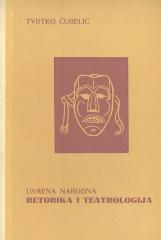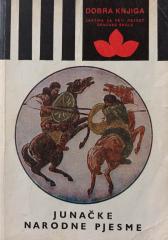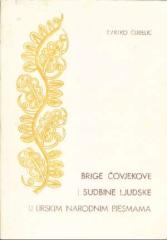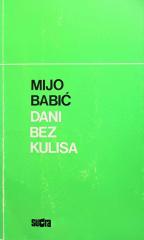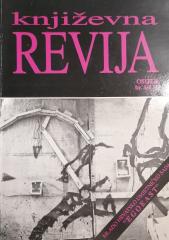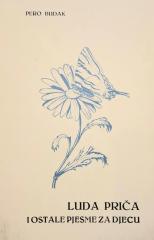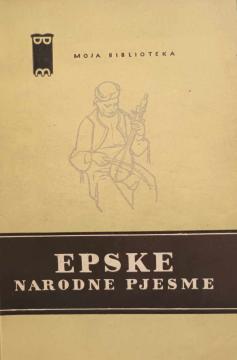
Epske narodne pjesme
Izbor tekstova sa komentarima i objašnjenjima i razgovorom o epskim narodnim pesmama.
Kod mnogih naroda, iu raznim delovima sveta, razvile su se dve vrste književnosti, sa stanovišta poetskog, stvaralačkog i formativnog principa. Jednu su stvarali i pisali pisci u vidu pesama, priča dake, romane, drame i druge književne forme. Njihova dela su sačuvana, jer su ili rukopisna ili štampana kasnije iz 15. veka. Znamo skoro sve što nam je potrebno o njenim autorima, odnosno kada su stvarali svoja dela, kako su pisali, šta je na njih uticalo i šta su želeli da kažu. To je pisana književnost, odnosno ona vrsta književnosti za koju je nacionalno pismo igralo odlučujuću ulogu u okviru detaljno i posebno razrađenog pisanog književnog jezika (1). Podvlačim samo neospornu činjenicu da je sveukupnost narodnog i narodnog jezika ostvarena na izvestan način, u kome su u pisanoj formi razrađene osnovne zakonitosti i na pravilnostima i zakonitostima pismenog izražavanja i saopštavanja misli. Posebno treba istaći da kategorija pismenosti, ili kategorija pisanog i pisanog (2), odnosno one pretpostavke i preduslovi koji proizilaze iz činjenice pisanja, razvija jezički sistem u jednom usmerenom pravcu i time ostvaruje samo određeni niz. mogućih realizacija konkretnog jezičkog sistema, koji su prisutni u pisanom kontekstu. Tok pisane literature pokazuje, doduše, širok spektar fonološko-fonetskih, morfoloških, sintaksičkih i stilskih komponenti jednog jezičkog sistema, posebno u njegovom istorijskom dometu. Ali to ga nikako ne iscrpljuje do kraja, i koliko god da je njegov istorijski kontinuitet bujan, svestran i bogat, mnoge mogućnosti unutar jednog te istog jezičkog sistema nužno ostaju neiskorišćene.
One copy is available
- Traces of patina
